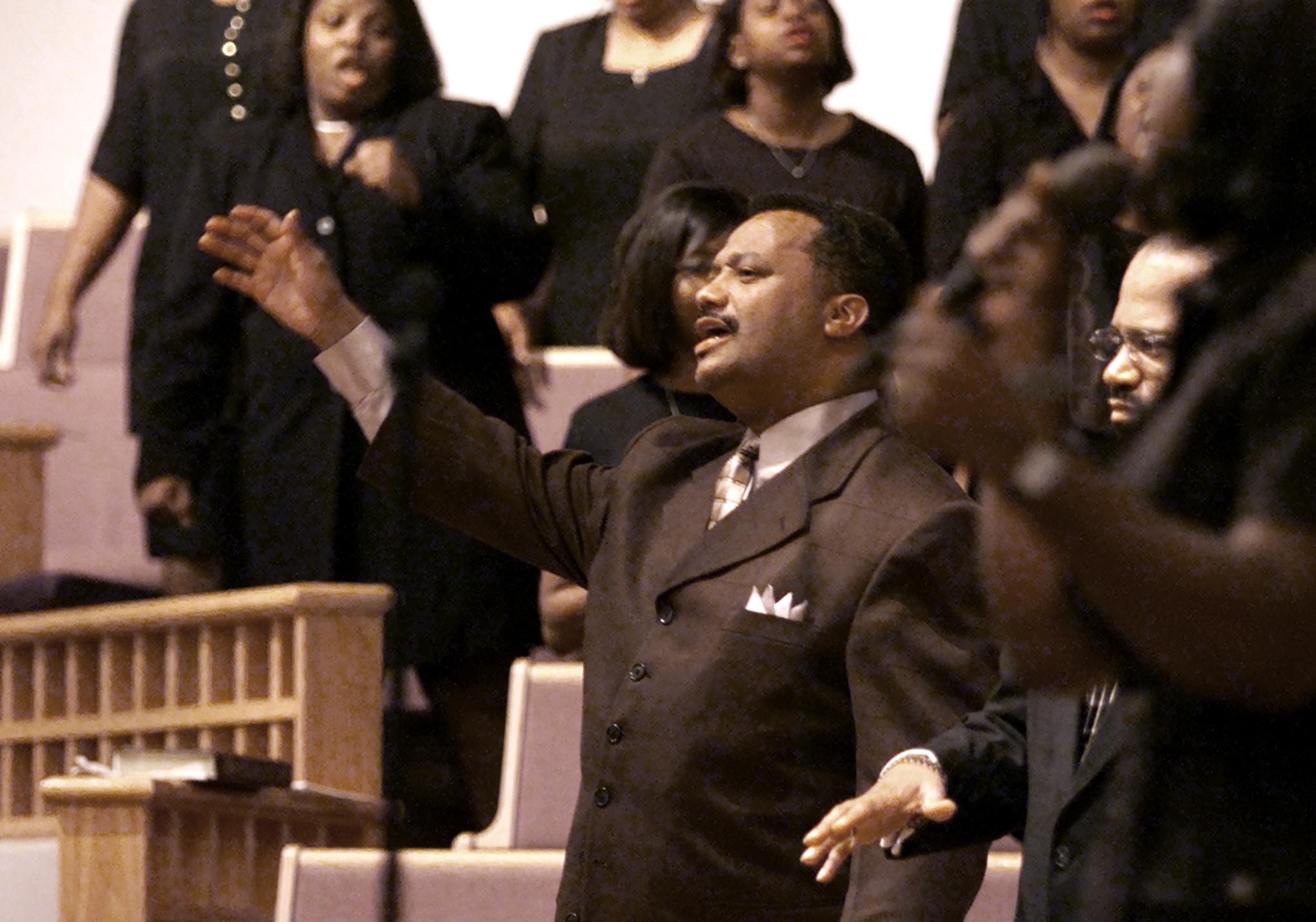
NEW ORLEANS (BP)–What does a preacher say to the world’s largest Protestant denomination? There are many things an African American preacher might say, given the opportunity to address a denomination perceived by many as having at best a tenuous track record in racial equality.
Fred Luter has pondered that question since he accepted an invitation to preach the convention sermon during the Southern Baptist Convention’s June 12-13 annual meeting in New Orleans. “I thought about what I should say and wondered if I should try to fix what’s wrong with the Southern Baptist Convention,” the New Orleans pastor said. After prayerful consideration, the pastor of Franklin Avenue Baptist Church said he decided to do something that would not offend anyone.
“I’m going to lift up Jesus,” Luter said. “Nobody can get mad about that.
“I’m a preacher at heart,” he added. “I’ll leave the political stuff to the [SBC] president. I’m just going to talk about Jesus.”
The high-profile invitation to address messengers is an opportunity that Luter counts as a blessing — just one of many blessings he has experienced since becoming pastor of Franklin Avenue in 1986, then a Southern Baptist mission with 65 members. Under Luter’s leadership, the church has grown to an active membership of 7,000 with three Sunday worship services.
In 1996 he was elected second vice president of the SBC, and in that same year he became one of two African Americans serving on the LifeWay Christian Resources board of trustees.
But there was a time when Luter did not receive praise for his ministry. Luter said he remembers the days when he was the subject of strong reproach from other African American pastors in the city for his association with a predominantly white denomination. “Uncle Tom” and “Puppet on a String” were just a few of the names some National Baptist pastors called Luter behind his back. The comments used to bother him, he admits, but now he attributes such comments to “jealousy and envy.”
It’s understandable that Luter’s hugely successful ministry could stir such feelings among sideliners. At a time when many African American churches are struggling to attract men, the ministry at Franklin Avenue is challenging men to be “godly husbands and fathers.” The men’s ministry at Franklin Avenue is well known throughout the city for its impact on the church and greater New Orleans.
Luter leads by example. His loving esteem for his life and ministry partner, Elizabeth, is apparent. Both Fred and Elizabeth have delved into a number of ministry opportunities through the SBC. A licensed pharmacist by training, Elizabeth now devotes herself fulltime to ministry activities, including Living Proof with Beth Moore, a woman’s ministry consultant for LifeWay Christian Resources of the SBC.
During this week’s SBC annual meeting, she will serve as vice president of the minister’s wives’ conference. This year the couple also will participate in the Fall Festival of Marriage conferences. Both are popular conference leaders at Black Church Leadership Week held annually at LifeWay conference centers.
In the midst of a hectic preaching and conferencing schedule, the couple is actively engaged in everyday parenting activities with their two children, Kimberly, 19, and Chip (Fred III), 16.
Changing lives is what is important to Luter and Franklin Avenue, not issues like being a black church in a predominantly white denomination. But because of their pastor’s high level of activity within the SBC, church members can’t help but aware of their SBC affiliation and participate in convention-related events.
SBC President James Merritt was a guest preacher during the church’s annual men’s day celebration on June 10. Even with such exposure, Luter said, being Southern Baptist “is not something that a lot of them see as a major issue.”
Still, being the first African American preacher to deliver the convention sermon is no small potatoes, Luter said, reflecting, “I think it will cause my church members to look at me and say, ‘You know, our pastor is somebody.'”
Known for his affability and easy humor, Luter is also regarded by many as a humble preacher.
“I’m in this position because I’m standing on the shoulders of other African Americans who have paved the way,” he said.
Luter said he regards his invitation to preach the convention sermon as a tribute to African American Southern Baptists like Sid Smith and Emmanuel McCall and “others that I don’t even know.”
Luter said he also is aware of the impact his sermon may have beyond the messengers attending the meeting. “I hope it will have an impact, because it is needed,” he said.
He hopes for a positive reception and that the experience will open possibilities for other minority ethnic Southern Baptists.
“I want people to know that we are a part of this convention and that we can be a part, not just in numbers, but fully participate in convention activities,” Luter noted.
Luter handles the legion of ministry opportunities that come his way with ease. Yet he will assume the podium on June 12 with a sense of both joy and burden. This will not be an ordinary sermon.
“I realize that future opportunities for African Americans and other ethnics may be based on how well I do with my sermon,” Luter said.
Despite the undercurrent of issues that may be associated with Luter’s momentous message, his most pressing desire is that “the Lord will be lifted up at the Superdome.”
Luter said he hopes this historic event among Southern Baptists will serve as a spiritual boost that will send an important message to those within and outside the convention. He further expressed a desire that his presence behind the podium at 7:30 p.m. on Tuesday will serve as a signal to the world that the racial climate among Southern Baptists continues to move away from its past.
–30–
(BP) photo posted in the BP Photo Library at http://www.bpnews.net. Photo title: LUTER PRAISES GOD DURING SERVICE.
















